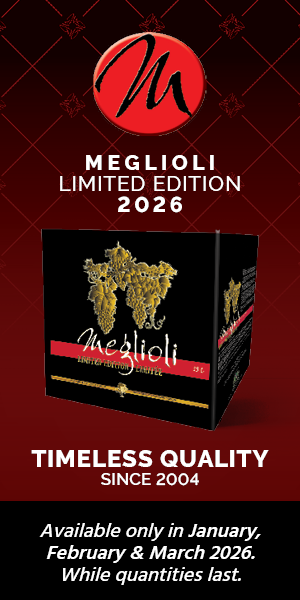When do I cross the line from being just a home hobbyist to being a “winemaker?”
Q: I have been making wine at home for the past five years and my friends tell me I am pretty good! They like my wine and I thought about starting to sell it at our local farmers’ market. My question is, when do I cross the line from being just a home hobbyist (which I know is legal) to being a “winemaker” in the eyes of the public and presumably the government? I don’t want to do anything wrong but I’d like to explore my options.
— Jennifer Michel • Calabasas, California
A: There definitely has been an explosion in the number of people making and selling wine in this country! Every year, the number of brands listed with the TTB (Alcohol and Tobacco Tax and Trade Bureau — www.ttb.gov/wine) increases by the thousands. It’s no surprise that the US is now the number one wine market in the world and we’re the market everyone (and I mean everyone, from the Portuguese to the Chinese) want to be in. What that means is that there’s plenty of competition out there but it also means there are a lot of interesting opportunities. I believe that the non-traditional parts of the United States and Canada are in the beginning of a regional wine boom and that you may indeed have success marketing and selling your product locally. It takes a smart business plan, a good product and a lot of hard work (as many of my friends who have started their own brands will tell you) but it can pay off.
Back to your question, however. Technically anyone over the legal drinking age in their state (in the US) may make up to 200 gallons (757 L) of wine per year per household and not have to report anything to the government. That’s about 3.3 barrels, 83 cases or almost 1,000 bottles! Quite a lot, if you ask me. Make over that amount of wine, however, or sell any of your homemade products, and the government wants to start taking you seriously for tax purposes as well as to keep tabs on how many alcohol producers we have in our country. Long story short, the minute you sell your wine or grow your production above a certain level, the government starts to get involved. Farmers’ markets are great ideas for selling venues, but talk to your local farmers markets’ board first; often they are not allowed to sell alcoholic beverages due to their own by-laws or that of their location.
If you decide to get into commercial wine production you will want to do your homework. I recommend that everyone begin online at the TTB website, which has a link for those looking to become a bonded winery (http://www.ttb.gov/wine/federal_app.shtml). The ttb.gov website itself is quite an eye-opener into the complexities of the legal landscape you’ll be getting into. If you can afford it, I also suggest that you take a class at a local college or university extension office about wine marketing, winemaking or getting into the wine business. Increasingly, educational institutions in up-and-coming winegrowing regions are offering such courses. Also, the TTB has what they call their TTB Expo (https://www.ttb.gov/outreach/outreach-program). The TTB also holds regional seminars but not every year. The TTB website lists when they are held.
Libraries and the Internet are also great places to start researching. Two of my favorite books on wine marketing just came out last year: Wine Marketing and Sales: Strategies for a Saturated Market by Dr. Liz Thach, Janeen Olsen and Paul Wagner and Wine Brands: Success Strategies for New Markets, New Consumers and New Trends by Evelyne Resnick. Both are worth picking up. The authors offer a thorough look at marketing strategy and will give anyone interested a great introduction to the terminology and technical knowledge needed to launch a wine brand.
Sometimes people in the industry say that making the wine is the easy part. It’s the selling that can be tough. There’s a lot of competition out there and small brands often have a really hard time getting distribution. But you may have a unique opportunity on your hands if you follow the rules and follow your good instincts.


